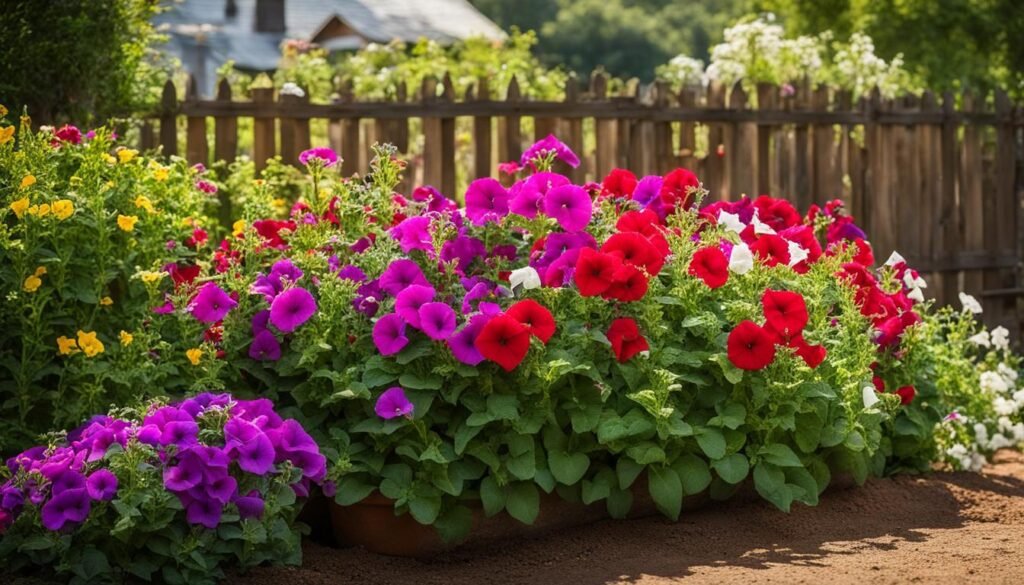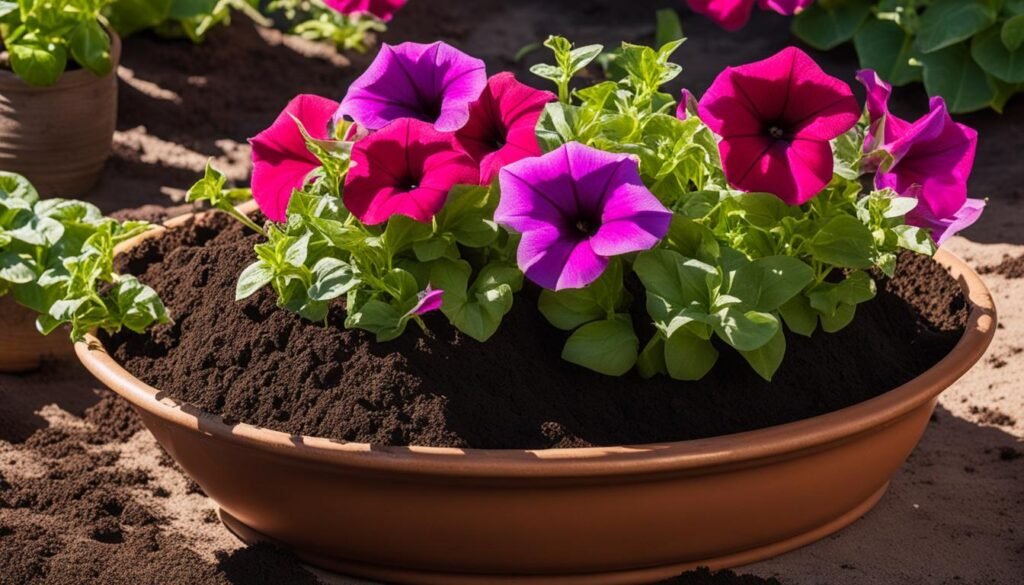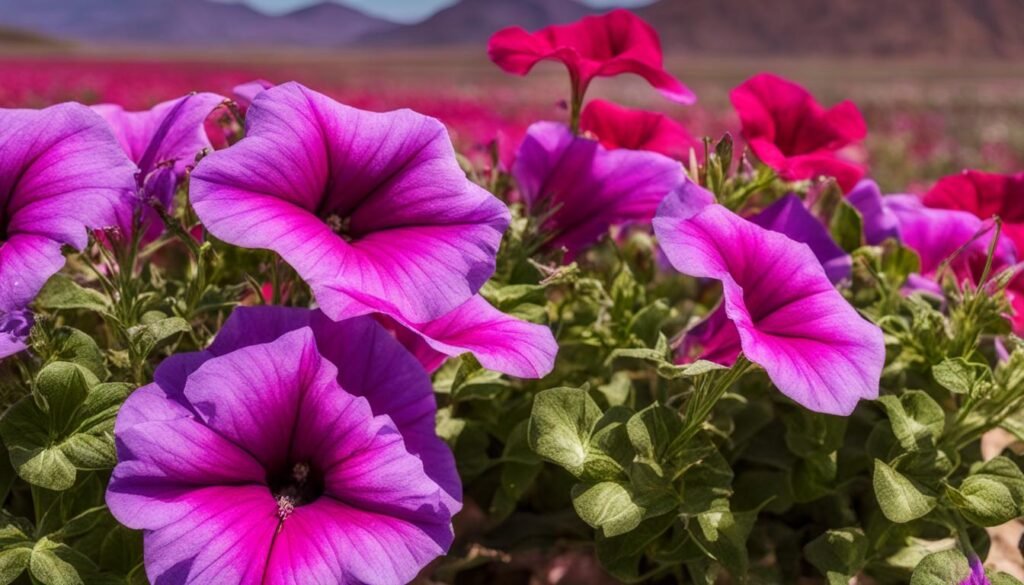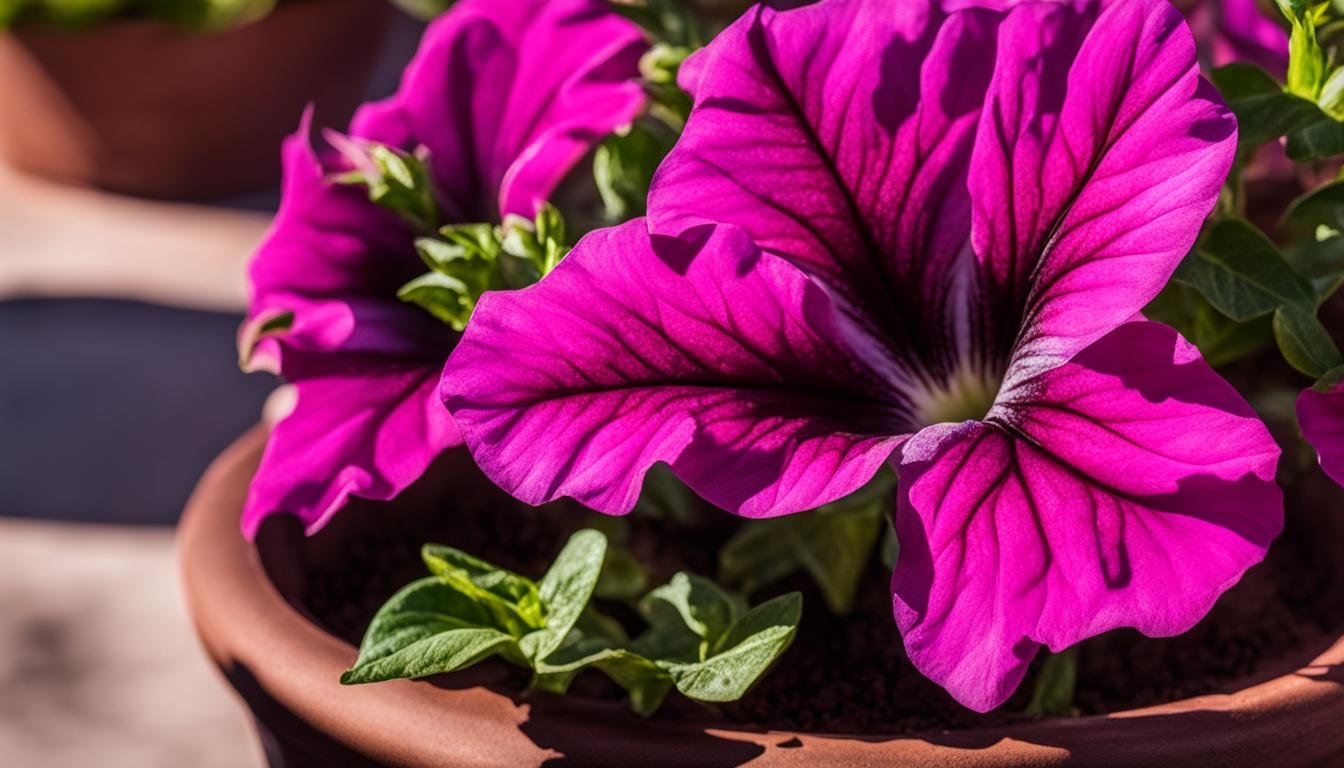Coffee grounds have long been hailed as a secret weapon for gardeners, and it turns out they can work wonders for petunias too! If you’re wondering whether coffee grounds are beneficial for your beloved petunias, the answer is a resounding yes. These humble remnants of your morning brew can provide numerous benefits for your petunias, from enhancing their nutrient intake to improving soil quality. Let’s dive into the world of coffee grounds and discover how they can elevate your petunia care routine.
Key Takeaways:
- Coffee grounds serve as effective fertilizers for petunias, providing them with essential nutrients for healthy growth and vibrant blooms.
- Adding coffee grounds to the soil can help lower its pH, creating ideal acidic conditions that petunias thrive in.
- Coffee grounds also improve soil drainage, promote water retention, and can even repel pests, making them a versatile addition to your petunia care routine.
- Whether you choose to sprinkle coffee grounds around the base of your petunias or incorporate them into the soil, both methods can yield positive results.
- By understanding petunia growth requirements, soil composition, and proper watering techniques, you can maximize the benefits of using coffee grounds for your petunias.
Understanding Petunia Growth Requirements: Full Sun and Soil Needs
Petunias are beautiful flowering plants that can elevate the charm of any garden or landscape. To ensure their healthy growth and vibrant blooms, it is essential to understand their specific growth requirements, particularly regarding sun exposure and soil conditions.
Petunia Sun Exposure
Petunias are sun-loving plants that thrive in full sun. They require at least 6 hours of direct sunlight per day to reach their full potential. The bright and intense rays of the sun provide the energy necessary for photosynthesis, which is crucial for their growth and flower production. Therefore, it is vital to plant petunias in an area that receives ample sunlight, such as a sunny spot in your garden or a location with minimal shade obstruction.
Well-Draining Soil
Another important factor in growing healthy petunias is providing them with well-draining soil. Petunias prefer soil that allows excess water to flow away, preventing waterlogging and potential root rot. Well-draining soil ensures adequate oxygenation of the roots while retaining sufficient moisture for the plants. This balance is critical for the overall health and vigor of the petunias. To improve soil drainage, incorporating organic matter into the soil, such as compost or coffee grounds, can be beneficial.
Acidic Soil for Petunias
Petunias thrive in slightly acidic soil with a pH level between 5.5 and 6.5. The acidity of the soil affects nutrient availability to the plants and plays a vital role in their overall health and development. Adding coffee grounds to the soil not only enriches it with organic matter but also helps lower the pH, creating the ideal acidic conditions for petunia growth. Coffee grounds serve as a natural and eco-friendly way to create the optimal soil environment for your petunias.
Watering Your Petunias: Tips and Best Practices for Optimal Growth

Proper watering is essential for the health and vitality of your petunias. These beautiful flowers rely on consistent moisture to thrive, but overwatering can be just as detrimental as underwatering. To help you achieve optimal growth and avoid common watering pitfalls, we’ve compiled a list of tips and best practices.
1. Understand the watering frequency:
Knowing when and how often to water your petunias is crucial. As a general rule, petunias should be watered once or twice a week, depending on factors such as climate, soil type, and the amount of rainfall. Monitor the soil moisture regularly and adjust your watering schedule accordingly.
2. Focus on water retention:
Petunias benefit from well-draining soil that retains moisture without becoming waterlogged. To improve water retention in your garden beds, consider adding organic matter, such as compost or coffee grounds. These natural additives help to regulate moisture levels and reduce the risk of overwatering.
3. Avoid overwatering:
Overwatering can lead to root rot and other issues, causing stress or even death to your petunias. To prevent overwatering, ensure that the soil is dry to touch before watering again. It’s also important to provide proper drainage by choosing well-draining containers or incorporating materials like gravel or sand into the soil.
- Water your petunias early in the morning or late in the afternoon to minimize evaporation and give the plants time to dry before nightfall.
- Avoid wetting the leaves when watering, as this can increase the risk of diseases.
- Consider using a drip irrigation system or a soaker hose to deliver water directly to the root zone, reducing water waste.
By following these watering tips and best practices, you can provide your petunias with the perfect amount of moisture they need to flourish. Remember, finding the right balance is key to maintaining their health and ensuring a stunning display of blooms throughout the season.
Choosing the Right Soil for Your Petunias: A Guide to Soil Composition and pH

Growing healthy and vibrant petunias starts with choosing the right soil composition and maintaining the optimal pH levels. The soil you use plays a crucial role in providing your petunias with the necessary nutrients, improving soil drainage, and promoting proper aeration. Here are some key factors to consider when selecting the perfect soil for your petunias:
Soil Composition:
Petunias thrive in well-draining soil that is rich in organic matter. A balanced soil composition of sand, silt, and clay is ideal for their growth. Aim for a ratio of 40% sand, 40% silt, and 20% clay. This combination ensures proper water drainage while retaining enough moisture for the petunias’ roots.
pH Levels:
Petunias prefer slightly acidic soil with a pH between 5.5 and 6.5. A pH level in this range ensures that essential nutrients are readily available to the plants. Adding coffee grounds, which are slightly acidic, can help lower the soil pH and create the optimal conditions for petunia growth.
Improving Soil Drainage and Aeration:
In addition to the right soil composition and pH, good soil drainage and aeration are essential for the health of petunias. Well-draining soil prevents water from pooling around the roots, reducing the risk of root rot. Adding organic matter such as compost or coffee grounds improves soil structure, allowing for better air circulation and root development.
By choosing the right soil composition, maintaining the optimal pH levels, and ensuring good drainage and aeration, you can provide your petunias with the best possible growing conditions. Incorporating coffee grounds into your soil is a great way to improve soil quality and promote healthy petunia growth. With the right soil, your petunias will thrive and reward you with beautiful blooms all season long.
Growing Petunias in Hot Climates: Tips and Techniques

Petunias are known for their stunning blooms and vibrant colors, but they can sometimes struggle in hot climates. However, with the right care and attention, you can help your petunias thrive even in scorching temperatures. Here are some tips and techniques to keep your petunias healthy and happy in hot weather:
1. Choose Heat-Tolerant Varieties
When selecting petunias for your garden in hot climates, opt for heat-tolerant varieties. These varieties are specifically bred to withstand higher temperatures and can better tolerate the intense heat. Look for cultivars like ‘Surfinia’, ‘Supertunia’, or ‘Wave’ series which are known for their heat tolerance.
2. Adequate Watering is Key
In hot weather, it’s crucial to water your petunias properly. Water deeply and thoroughly to ensure that the root zone is adequately hydrated. However, avoid overwatering as it can lead to root rot. Check the moisture level of the soil regularly and adjust your watering schedule accordingly. Apply a layer of mulch to help retain moisture and regulate soil temperature.
3. Provide Some Shade
In extremely hot climates, it’s beneficial to provide some shade for your petunias during the hottest part of the day. This can be achieved by placing them in a location where they receive partial shade during peak sunlight hours. Be cautious not to provide too much shade as petunias still require a significant amount of sun exposure to bloom.
By following these tips, you can help your petunias thrive even in the hottest of climates. With proper care, your petunias will continue to provide you with breathtaking blooms throughout the summer months.
Conclusion
In conclusion, coffee grounds can be a valuable asset in organic gardening with petunias. By incorporating coffee grounds into your gardening routine, you can provide essential nutrients to your petunias, improve the quality of the soil, and promote healthy growth and blooming.
Not only are coffee grounds affordable, but they also contribute to sustainable gardening practices. By utilizing this organic option, you can reduce waste and help create a thriving and vibrant petunia garden.
Remember, to maximize the benefits of coffee grounds for your petunias, it is important to understand their growth requirements, including sun exposure, well-draining soil, and proper watering techniques. Additionally, if you live in a hot climate, implementing the appropriate strategies will help your petunias thrive even in high temperatures.
So why not join us in embracing the practice of organic gardening with coffee grounds and petunias? By doing so, you can contribute to a healthier, more sustainable environment while enjoying the beauty and abundance of your petunia garden.
FAQ
Are coffee grounds good for petunias?
Yes, coffee grounds serve as effective fertilizers for petunias, providing them with the necessary nutrients for healthy growth and abundant blooms.
What are the benefits of coffee grounds for petunias?
Coffee grounds can lower the pH of the soil, making it more suitable for petunia growth. They also improve soil drainage and aeration, promote water retention, and can repel pests.
How should I use coffee grounds for petunias?
You can either add coffee grounds to the base of the plant or incorporate them into the soil. Both methods are effective in providing nutrients and improving soil quality for petunias.
How much sunlight do petunias need?
Petunias require full sun exposure, preferably 6 hours of direct sunlight per day, for optimal growth and blooming.
What type of soil do petunias prefer?
Petunias thrive in well-draining soil that is slightly acidic, with a pH between 5.5 and 6.5. Adding coffee grounds can help lower the pH and improve soil quality for petunias.
How often should I water my petunias?
Petunias should be watered once or twice a week, depending on factors such as climate and soil type. It is important to maintain moist but not waterlogged soil to avoid root rot.
How can I improve water retention in the soil for my petunias?
Adding organic matter, such as coffee grounds, can help improve water retention in the soil and regulate moisture levels for petunias.
What is the ideal soil composition for petunias?
Petunias thrive in a balanced soil composition of 40% sand, 40% silt, and 20% clay. Adding organic matter, such as compost or coffee grounds, can improve soil fertility and structure.
How can I grow petunias in hot climates?
Choosing heat-tolerant varieties, providing adequate water and nutrients, and providing some shade during the hottest part of the day can help petunias withstand high temperatures. Coffee grounds can provide additional nutrients to support petunia growth in hot climates.
Are coffee grounds an organic option for gardening?
Yes, coffee grounds are an affordable and organic option for gardening enthusiasts. They provide essential nutrients and improve soil quality, resulting in a thriving and vibrant petunia garden.

Leave a Reply